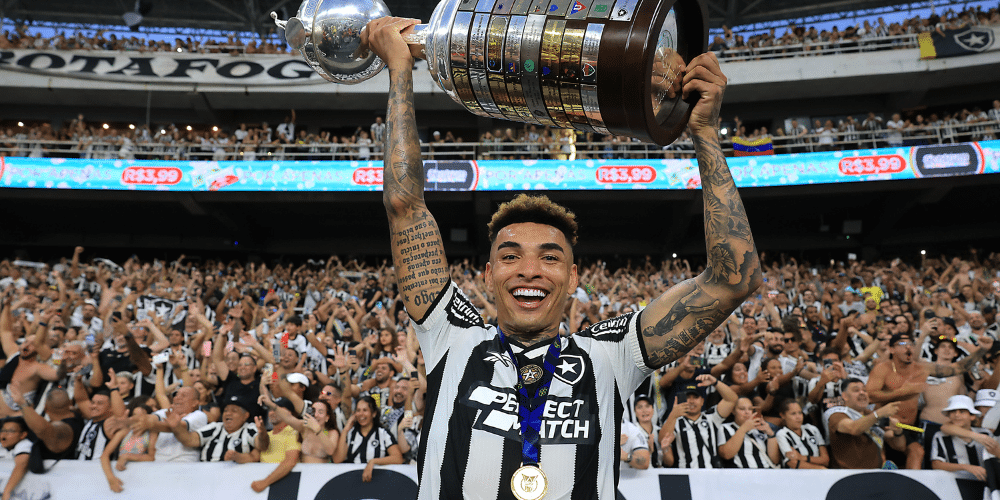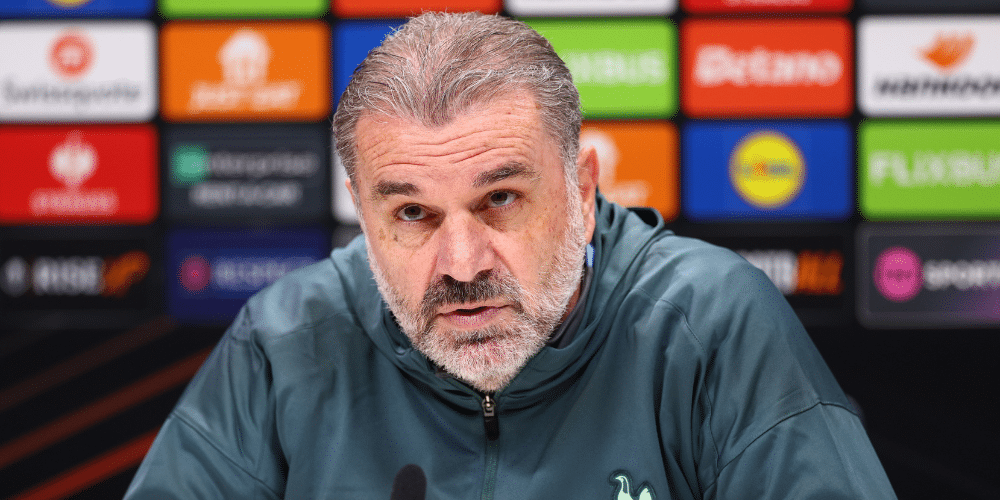Last night saw another defeat for Erik ten Hag and his Manchester United side, as they were knocked out of the Carabao Cup by the very side they beat to win the competition last season, Newcastle United.
This was a game that was seen by many fans as a chance for redemption, after an embarrassing Manchester Derby loss last weekend. It proved anything but, as United were handed another humbling on home soil. With the score 0-2 at half-time, a sold out Old Trafford crowd made their feelings known with boos echoing the halls of what was once considered the Theatre of Dreams. For Ten Hag and his players, it’s fast becoming the Theatre of Nightmares.
This sort of performance has been all too common in recent months and despite a mild resurgence in the second half, Joe Willock’s impressive strike was the final nail in the coffin of what was a dismal night. This alarming display left Ten Hag as a lonely figure on the touchline, a stark contrast to a largely positive first season for the Dutchman, and raises the question; What has happened to Manchester United?
With eight defeats from their first 15 games in all competitions this season, the Red Devils have their highest number of defeats at this stage of a season since 1962/63. After losing their first two Champions League games to Bayern Munich and Galatasaray, United set another new and unwanted first, with the latter loss also the first time the Turkish visitors had won on English soil. Ten Hag, is now under serious pressure.
Questionable decisions have brought the spotlight onto the manager, with Rasmus Højlund substituted for Antony Martial, a player that is still somehow at the club despite eight largely underwhelming seasons, during the derby defeat to Manchester City.
Antony, despite his off field problems and predictable style, has continued to feature over the promising Facundo Pellestri or Alejandro Garnacho. Signings of a goalkeeper and another number eight, in Mason Mount, ahead of proven centre-forward has left United reliant on the young Højlund to lead what lacklustre attack there is. The Dane remains without a goal in nine domestic games, despite some impressive performances in Europe.
Finally, the appointment of Bruno Fernandes as captain has been contentious. The midfielder’s consistent moaning and sulking has taken precedence over his goals and assists this campaign, so far.
However, Ten Hag is not the first manager to have experienced this low and, potentially, to have lost the dressing room. Since the retirement of Sir Alex Ferguson in 2013, United have had seven managers, including the two interim coaches in Ryan Giggs and Ralf Rangnick.
Every one of these managers experienced a subtle rise before the eventual fall, whilst watching their bitter rivals in Man City and Liverpool rise to the top. So, this begs two questions. Is it time to turn the attention off the manager and onto the wider picture at Man Utd? Should the club look back, to go forward?
The last time United faced a period of such dismay was in the 1980s, though personalities in Bryan Robson, Paul McGrath, Norman Whiteside and Mark Hughes ensured those teams played, at the very least, with desire and passion. Now, in the years post-Sir Alex, United fans could count on one hand the amount of big personalities that fit the bill of playing for a club the size of Manchester United.
A culture of sulking, blame and deflection onto a coach’s tactics has become widespread within the squad over the years, something that seems to be easily contagious to new signings. Some players, who have thrown previous managers under the bus, still walk the halls of Carrington and Old Trafford. Cultures, like this, toxic and negative, are not something that have come overnight with the appointment of Ten Hag. In fact, many at the club made it known, after his appointment, that he was a shining light in an environment that was rotten from the very top.
On top of performances on the pitch, off the pitch there have been court cases and sexual allegations involving two players, that have not reflected well on the club and its principles. As well as this, the neglect of a ground and training facilities that used to be the best in class is there for all to see. Old Trafford, a stadium that hosted the Champions League final as recently as 2003, now does not even make the list of the top ten stadiums in the country. Leaks and rust are clear to see on a ground dubbed the ‘Theatre of Dreams’ by the late, great Sir Bobby Charlton. For some time, United have not come close to realising the dreams of the fans who attend it.
Sir Bobby Charlton 1937-2023
Paying tribute to one of England’s greatest. pic.twitter.com/gu1g3hQ0RV
— ITV Football (@itvfootball) October 27, 2023
Though both of these seem irrelevant in impact on the pitch, even an excuse to some, they play a major part in the answer to what Manchester United needs; a culture of excellence. This is something that the majority of fans, ex-players and pundits feel has lacked since the departure of Ferguson. United under Sir Alex, had the best stadium in the country, and one of the best in the world. It had a recruitment department, headed by elite scouts, who were known for signing the next prospect and making them into a superstar. The club had a philosophy and identity that stemmed back to the days of the Busby Babes, with youth at the forefront of recruitment. These aspects alone, are what many pundits and journalists now laud clubs like Manchester City, Liverpool and Brighton for. In the early Premier League, it was United who had set the bar.
Now, even the mention of the Glazers, to most opposing or neutral fans, leads to eye rolls and the argument that all of the managers, since Sir Alex, have been backed financially. However, these funds have been misused from the very top to the dugout, with scattergun recruitment, over-paying on transfer fees, and the lack of hiring the right people in important positions within the footballing department. This week, United got a lesson from two clubs who have shown how funds can be invested, in Man City and Newcastle United.
Man City have spent, roughly, the same amount on transfers as United, whereas Newcastle have spent far less under their new ownership, yet both have managed to recruit wisely and implement a successful culture from top to bottom. Instead, at Manchester United, there has been a culture of greed, naivety and favouritism. Under the Glazers, the American owners have landed the club in £1 billion worth of debt, and counting, due to the £500 million (plus interest) they took out to buy the club and the £317.8 million in unpaid transfer fees they owe to other clubs.
With so much toxicity and negativity within the club, many have asked; How can this be turned around? Some would say the potential investment by British billionaire Sir Jim Ratcliffe is a start but, with only 25% of the club being handed over to him, how much change can he actually bring about?
Pundits have nodded to the fact that the uncertainty around the club’s ownership structure, is having an impact on the pitch.
Ratcliffe is said to want full control of the football operations at the club. Should he be successful in his 25% acquisition, there is lingering doubt within the recruitment and football departments about the safety of their jobs. This lack of clarity has led to uncertainty over transfer budgets and how much can be spent, even in the last window, what renovations can be done to the facilities, and who will be in the dugout.
With hope looking low at the club right now, the one solution to how Manchester United can even be, at the bare minimum, less of a laughing stock and garner some respect back, as a club, is for there to be clarity. Clarity on ownership, whether that be under a new ownership with full control of the club, ideally, or clarity in communication within the club, from above on how they’ll proceed going forward.
Until this first step is taken, the problems at Manchester United will continue to worsen and the ‘rinse and repeat’ merry-go-round of managerial changes and big fee signings will result in the same outcome; a graveyard for careers.


